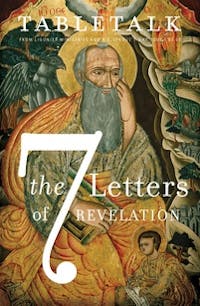
Request your free, three-month trial to Tabletalk magazine. You’ll receive the print issue monthly and gain immediate digital access to decades of archives. This trial is risk-free. No credit card required.
Try Tabletalk NowAlready receive Tabletalk magazine every month?
Verify your email address to gain unlimited access.
Many evangelical churches in North America are scrambling to find strategies that will enable them to reach out effectively with the gospel of Jesus Christ. Despite a rich heritage of gospel teaching on this continent, there is a sense of discouragement, even despondency, among many Christians about the prospects for evangelism in our time. And so a variety of pragmatic schemes are being employed to assure success in the communication of the gospel.
However, before the evangelical church succumbs to the temptation to craft strategies that accommodate the gospel to the spirit of the age, we need to listen carefully to Christ’s letter to the church in Philadelphia. In this letter, Christ speaks to a small and beleaguered church, which was assailed by fierce opposition to its testimony to Christ, and warmly assures them that He will set before them an “open door” of opportunity to witness to His name (Rev. 3:8). Because of their tenacious grip upon the true testimony concerning Jesus Christ, the witness of the church in Philadelphia will be a beacon of light, drawing them and others into fellowship with the living God and entrance into His temple-sanctuary.
The pattern of this letter resembles closely that of the others. It begins with an important identification of the letter’s author, who alone holds the “key of David” and has the authority to grant entrance into the kingdom of God (v. 7). Then the letter extends a word of encouragement to the church in Philadelphia, promising an “open door” of opportunity in light of its steadfast perseverance (v. 8). And it concludes with a rich assurance of communion with the living God in His eternal temple-sanctuary.
The self-identification of the author of this letter provides an especially important background to its message. The words of this letter are “of the holy one, the true one, who has the key of David, who opens and no one will shut, who shuts and no one will open.” “Holy” and “true” are divine attributes in the Scriptures and in the book of Revelation (6:10). Christ thus assures the Philadelphians that His words have divine authority. Christ Himself is the true witness whose word comes with absolute reliability. The recipients of this letter are assured from the outset that Jesus is the true Messiah, and their witness to Him is wholly true.
These opening words of self-identification are reminiscent of the language that identifies Christ in Revelation 1:18. They also explicitly appeal to the language of Isaiah 22:22 where Eliakim is identified as the Lord’s servant who was granted authority to administer the keys of access to David’s house. What Isaiah prophesied regarding Eliakim foreshadowed Jesus Christ, who has absolute authority over the key to the household of God and the eternal kingdom. No one, whether Jew or Gentile, enters God’s house or takes his place among the people of God unless Christ grants him access or entrance.
With these words of remarkable self-identification ringing in their ears, the letter turns to the promise that Christ extends to the church in Philadelphia. Christ “knows” their works. He is aware that the church in Philadelphia was, when viewed from the standpoint of numbers or social prestige, a church of “little power” (Rev. 3:8). Yet, this church had “kept” Christ’s word and had not “denied” His name. Their witness to the truth concerning Jesus had remained steadfast, even when those of “the synagogue of Satan” opposed their witness and belied their testimony to Christ.
To this faithful church, Christ promises an “open door” of opportunity to witness to the gospel of salvation through faith in Jesus Christ, the true King of the people of God. Because of its persevering faithfulness to the gospel, this church, located at a strategic crossroads in the ancient world, will enjoy the privilege of calling Jews and Gentiles alike to acknowledge Jesus as Savior and Lord. The Christ, who holds the key of entrance into the kingdom of God, reassures this beleaguered church that it will be uniquely privileged in gospel witness and mission.
Because the church in Philadelphia has kept Christ’s word in patient endurance, it may be confident that, in the “hour of trial that is coming upon the whole world” prior to Christ’s coming, it will be spared. This assurance, contrary to the interpretation of some, is not a promise that the Philadelphians will be “raptured” before the time of testing comes but that they will be preserved through whatever trial comes. Nothing will separate them from God’s love in Christ. And so, as they hold fast to their “crown,” they are encouraged to look forward to the future, when they and all who share their faith in Christ will dwell in God’s presence forever.
The message of this letter to the contemporary church is startlingly clear. No message could be more relevant to an evangelical church in danger of losing faith in the ancient gospel and its power to transform sinners after the image of Jesus Christ.
